Meet The World Class Academy, the School Raising the World's Best Outdoor Athletes
World Class Academy is a fully accredited private high school. Though it is based out of White Salmon, Washington, the students are rarely there. The school has three different programs for three different adventure sports- climbing, kayaking, and kite boarding.
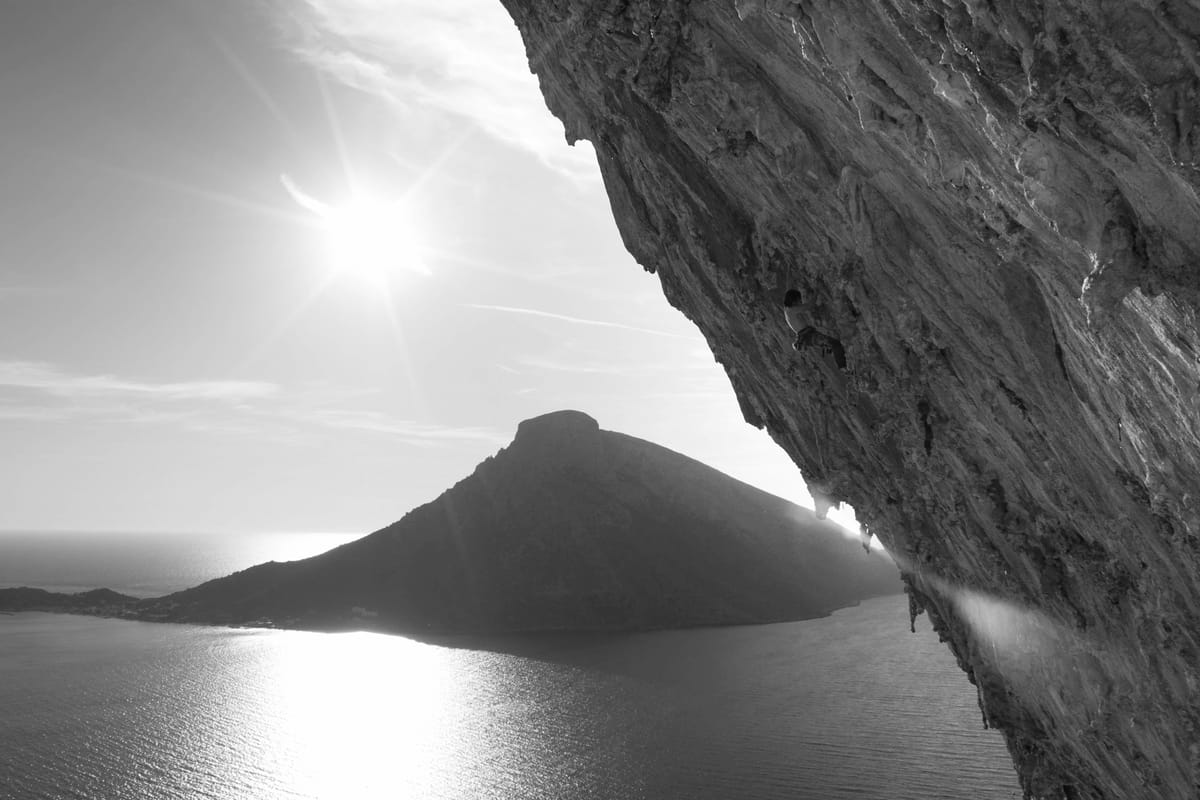
This article supplements an upcoming feature in the print edition of The Outdoor Journal. Subscribe here for the full feature story.
Each program travels the world in search of stimulating academic environments and quality athletic training grounds. The climbers travel the world in search of quality rock and good climbing temperatures, the kite boarders seek out the wind, and the kayakers move around according to river levels. The three programs are scheduled to visit a total of twelve different countries in the 2018-2019 academic year.
From haggling with import/export hustlers in Uganda, to being escorted through back roads by military personnel, their stories are sure to fulfil even the most adventurous of minds.
Traveling the world with a group of 12-20 high schoolers can be a daunting task. Add in the work of being a fully accredited high school, and you’ve got yourself a more than full-time job. On top of all that, staff and students are all participating in highly dangerous adventure sports each day, often in developing nations. The success of each World Class Academy program is highly dependent on their Program Director. The Program Director is responsible for the academic courses they teach and the athletics they coach, as well as the day to day schedule, logistics, and budget for the entire program. I interviewed each Program Director to get an idea of how they deal with the challenges of keeping the program running smoothly.
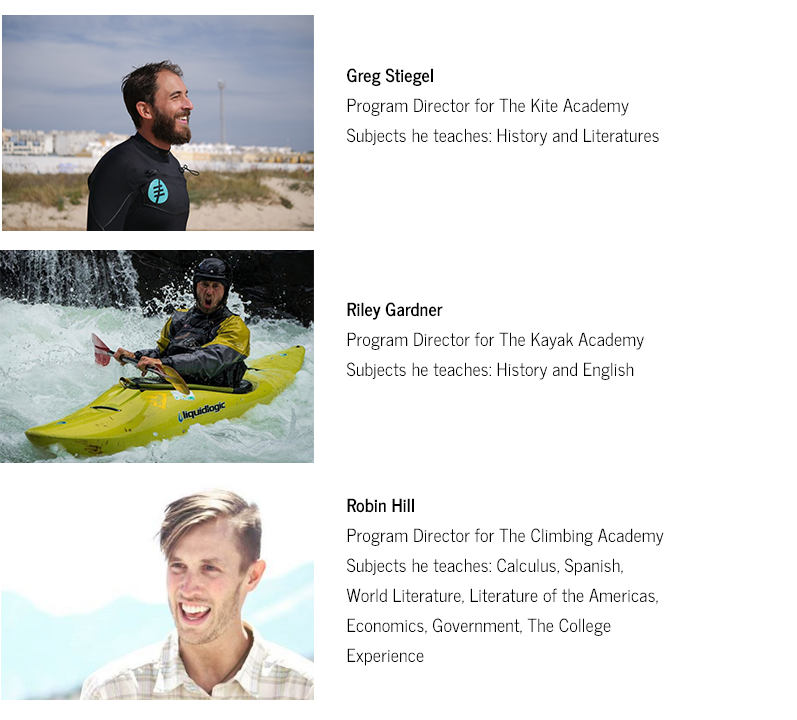
Where have you traveled with the school, and what has been your favourite destination?
Greg: I have been to the Pacific Northwest, USA, Panama, Colombia, Morocco/Western Sahara, Brazil, South Africa, Sicily, Italy. It is really hard to choose a favorite. There are so many redeeming qualities and fond memories from each place. I would say Morocco takes the cake in terms of cultural exposure and probably my best session in the waves. Brazil is the clear leader in flat water freestyle and classic warm water conditions.
Robin: In the last 2 years, The Climbing Academy has traveled to Wyoming, Utah, Spain, Mexico, Nevada, California, Greece, Tennessee, Kentucky, and Greece. I really liked Greece! It had a combination of interesting culture, cool history, good food, and fun climbing all jam-packed in one small area. We didn't have to drive and could walk everywhere. One one side of the road, there was huge overhanging limestone cliffs, and on the other, the Aegean Sea. As a result, we could swim in the Sea every day after climbing. This location was dynamic and had so much to offer in terms of climbing, culture, and place-based education.
Riley: So far I have been to Ottawa, Quebec, Uganda, Zambia, Chile and all over the West Coast USA with the school. Uganda and Zambia were amazing and such great experiences, but it is really hard to beat Chile. The rivers of Chile are so beautiful with crystal clear water and fun rapids. I think the Futaleufu has been my favorite single place from my time at the school so far.
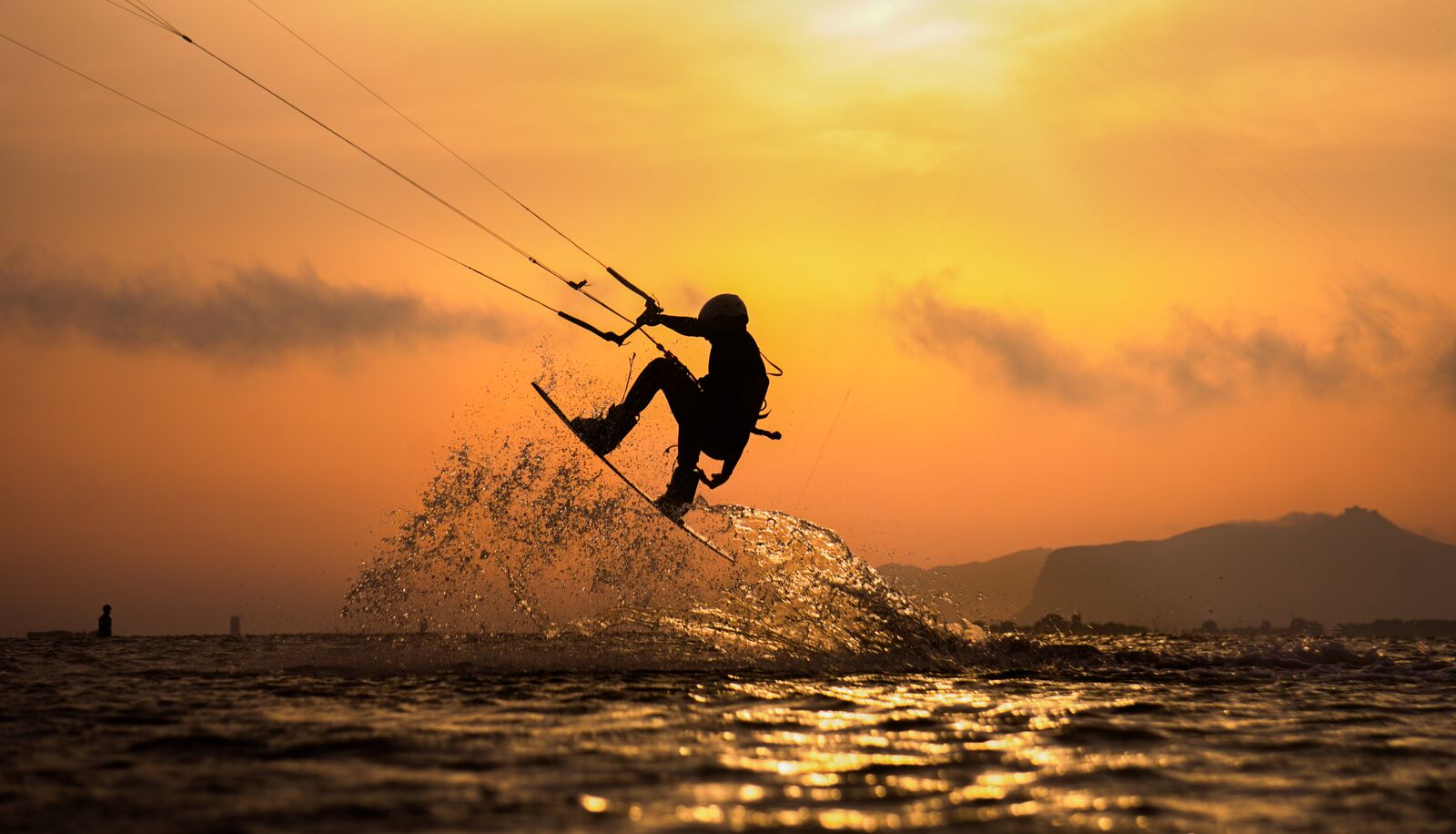
What is the biggest challenge you face role at World Class Academy?
Greg: Again, it is hard to definitively pick 1 challenge as the biggest. This job is so fluid and dynamic. I would say the biggest challenge is keeping the big picture in mind and understanding that I'm still doing a good job and the program is still a success even if it is not going according to the plan.
Robin: The PD is in charge of planning a dynamic and rewarding schedule. I had a hard time finding enough hours in the day to pack in everything we wanted to do. In order to provide high-end climbing and academic programs, we need to allocate a lot of time towards these realms. It is also important to build in strategic time to rest and relax, which leaves little time for other extracurriculars. At the same time, we are traveling to amazing places, with such cool opportunities to see ruins, go to churches, shop at local markets, and see different interesting sights. I love building this stuff in when there is time but have a difficult time finding the time and space to incorporate them.
Riley: Honestly, making sure we have food, water and everything else we need for school is a big challenge some days. 25 people eat a lot of food, and when we get low on food in a remote area, it is often a struggle to get more food that is also decent and nutritious. Also, dealing with injuries and sickness - especially while abroad - brings lots of challenges. There is never of a shortage of hurdles for the PD to deal with.
What is the most rewarding part of your job?
Greg: For me, I got a lot of value out of the last couple of days. Lots of family members join us for the last week, the kids all are excited to finish the year, people are working hard to finish on a high note, seniors graduate and give speeches. There is a lot of love and appreciation in the lost couple of days, which is really cool to see and be a part of.
Robin: Working with a talented and motivated staff, and student body, who are passionate about rock climbing and alternative education. Because of the incredible buy-in to the program, we are able to push to new heights in both climbing and in school. The students and staff are all willing to work hard, support each other and make this program the best it can be. As a result, it continues to get better and better.
It's the people that really make it a special place.
Riley: I think finding the next spot for us to go when we are on the move is my favorite and most challenging part of being PD. When it is time for us to pack up the whole school and find a new drainage to kayak in, it takes a lot of effort from the PD to figure out the best move. Where are the water levels good? Do the rivers offer something for everybody? How is the weather? Can we find a good spot to stay? How far away is it? Are we going to drive a bunch of hours for nothing? All those questions dictate where is the best move is going to be, and it takes a lot of time, effort and communication to find the right spot. But when we move to a new spot and the kids and staff are stoked, it is very worth it and I feel very rewarded when we are having fun on a new river.
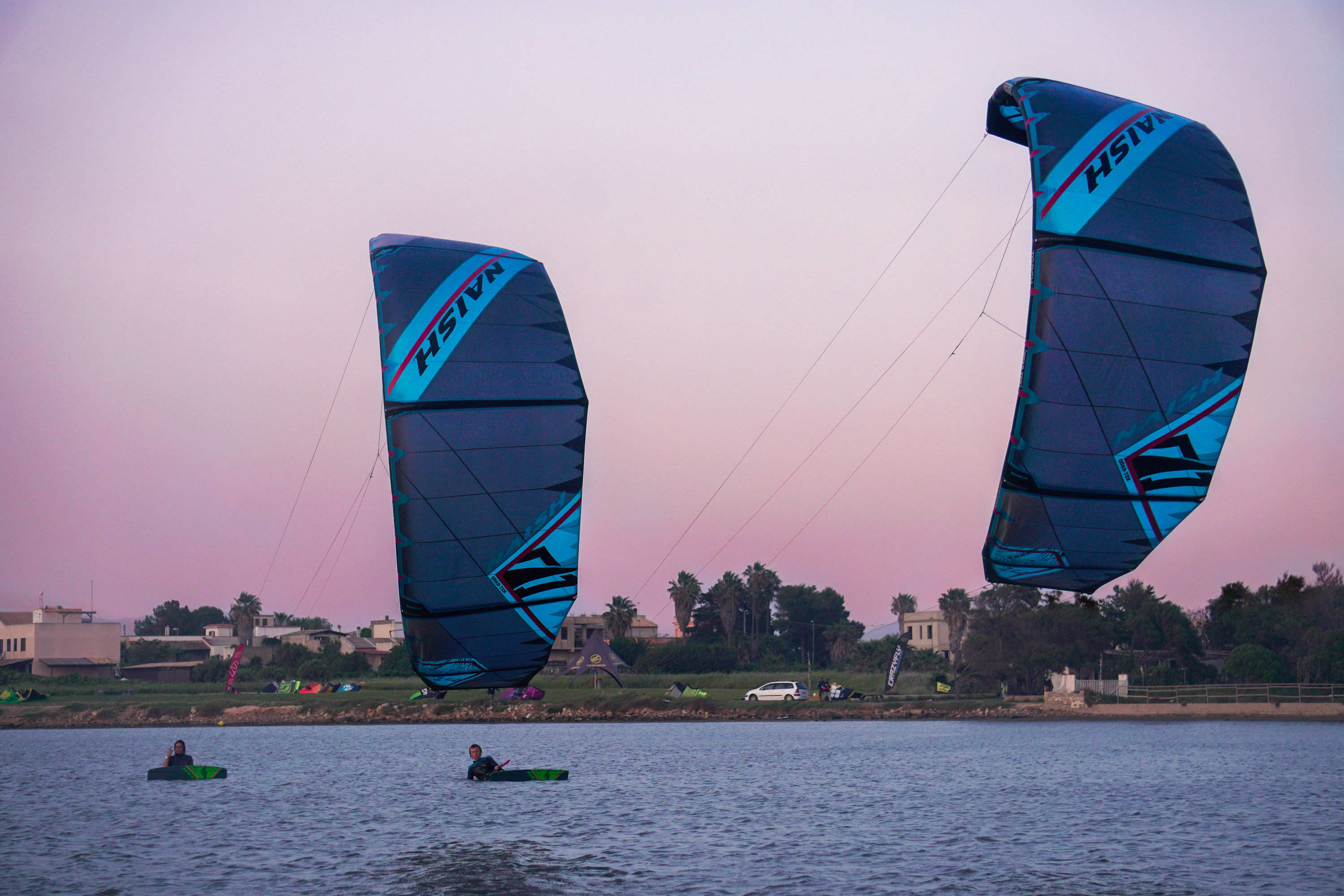
What do you think is the biggest challenge the students face while attending the school?
Greg: It is amazing to see the challenges that our students rise towards. Depending on the student, there are a multitude of challenges. There is usually an adjustment period to the fast paced nature of life at WCA. Kids are often challenged with time management and balancing some new found freedom with still needing to perform at a high level.
Robin: It can be really challenging to be away from home and to live in close quarters with a small number of people. Although challenging, it provides the perfect space to work on life skills such as patience, conflict resolution, empathy, and self-care. The staff is aware that these skills are a work in progress, and that each student is at a different place with each. As a result, we have so many opportunities to help students grow as people and build their life skills, even if the process can be slow, challenging or frustrating. These are the moments that can really make a difference and having supportive, patient and thoughtful staff are critical to a positive process.
Riley: I think the biggest challenge for students is spending so much time away from family and friends back home. Even though modern technology helps, we spend a lot of time in areas with no reception so it is not always easy for them to communicate with their family. Also the lack of private space and alone time definitely gets to them. When those two combine - no private space and missing family - students can get pretty on edge. But good kayaking always seems to make it better.
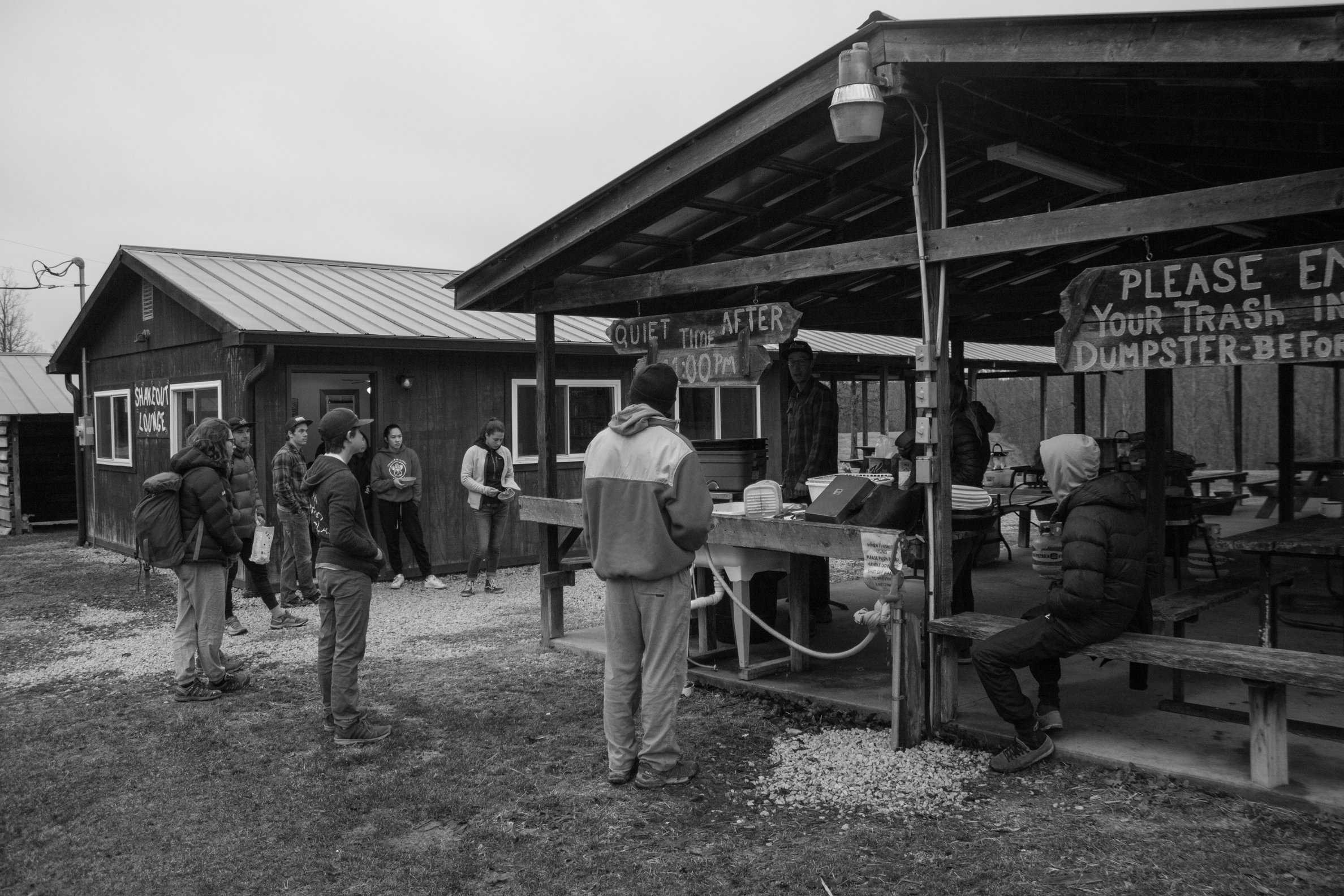
What is the weirdest experience you have had while working for the school?
Greg: Oh boy...there are a lot of wild stories that come out of a year with WCA, from sprinting through airports, racing through small towns in Colombia on the back of motorcycles, waiting for military escorts on thief-ridden back roads, trying to track down a stolen cellphone using a lost phone app, getting threatened by locals, and many more. For me personally, I got a few stiches in the head at a hospital that was questionable at best. We had to barge through doors to find someone to help, and then instead of paying anything at the end I was told that a donation of $10 was appropriate, if I thought the service was good.
Robin: Dynamite Day in Greece. To celebrate Easter on Kalymnos, they have an age-old tradition of throwing Dynamite off a local hillside for an entire afternoon. These are like fire-crackers on steroids. We went and watched for a couple of hours. Before the event starts, local business owners tape their windows, so the glass doesn't shatter. It was an intense experience, to say the least.
Riley: Well, when the school was going to Africa last quarter, South African Airways did not allow our kayaks on the plane in London headed for Uganda. Then, basically because I was the only one with a phone that worked, I stayed behind in London for 3 days to help figure out what to do with the kayaks. That was a pretty strange experience, made only weirder by the fact I only had Africa clothes, i.e. shorts and flip flops. This was London in October, so I received lots of strange looks from the folks in London. The worldwide shipping industry is also pretty weird it turns out and figuring out how to get 15 kayaks from London to Zambia was not easy. But Capo and I figured it out eventually, even though the kayaks took about 2 weeks to actually get to Uganda. Picking them up from customs in Uganda was an EPIC process and took about 10 hours. That was a strange one for sure. Evan (the PD at the time) and I were haggling with the customs agents for so long and going through such strange bureaucratic processes that when we eventually got super hungry, the guys we were haggling with took us to the workers cafeteria and we ate an African style lunch with a bunch of import/export hustlers.
In the middle of that lunch I was looking around and I thought to myself, "Wow, this is quite an interesting day of work."
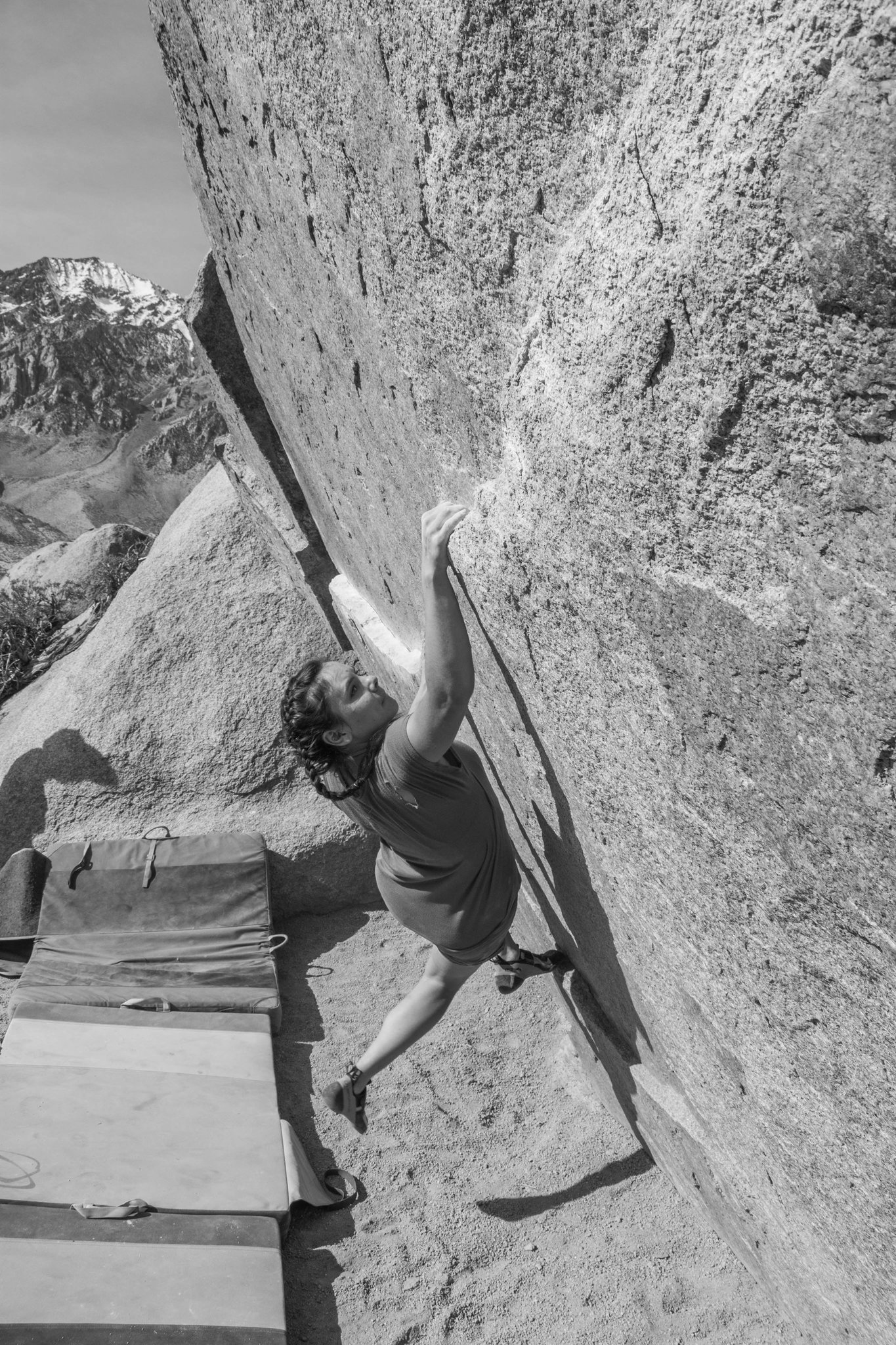
Can you tell me about your favourite memory you have from your time with the school?
Greg: This year, I think my favorite memory was graduation. We had a large senior class of 8, most of whom had been in the program for 2 years or more. It was really cool to hear from each of them and see their excitement to take on the next chapter in their lives.
Robin: The students here work so hard throughout the year. There are a thousand small memories, challenges, and successes that make it special. It has been really cool to celebrate the year with a Graduation Ceremony that the students put on. This last year, families came to Greece to celebrate with us. Our students took families out climbing, cooked them a welcome dinner, built a podium for our ceremony and gave thoughtful speeches. It was an emotional and powerful experience for students, staff, and families.
Riley: We did an overnight trip on the Futaleufu and it was one of my favorite moments. We had some hectic moments getting it started - flat tires, dividing up the food, chaotic rapids, but we found an amazing campsite on the river after a huge rapid. We settled in, ate a super simple dinner of potatoes wrapped in tinfoil and hot dogs and had such a fun evening. We had a huge bonfire on the beach and told stories, laughed, played music, danced... it was an amazing experience. In the morning, stoke was still high and no one wanted to leave camp, but we had to get back for school! That was one of my favorite memories for sure and I will never forget the kids stoke on remote, simple living.
[embed]http://www.youtube.com/watch?v=2daSoJhhZd8&t=6s[/embed]
Video: Cat Hardman, a student in the kayak program.If you would like to read the full World Class Academy story, available in the next print issue of Outdoor Journal, then you can subscribe here.
For more information on the World Class Adacemy, visit www.worldclassacademy.com/


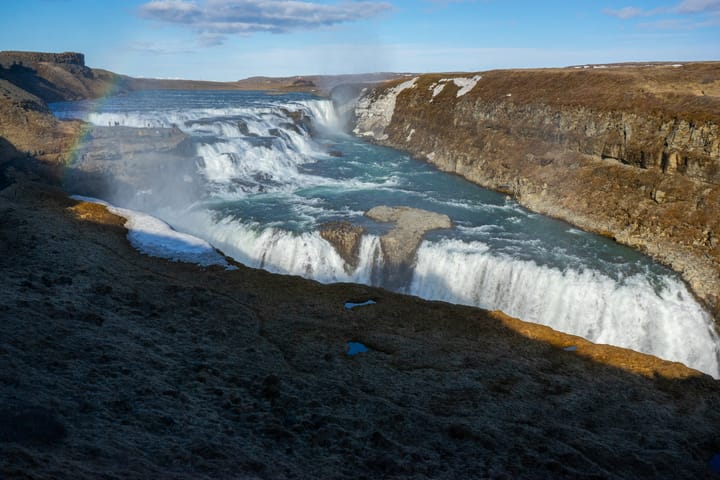
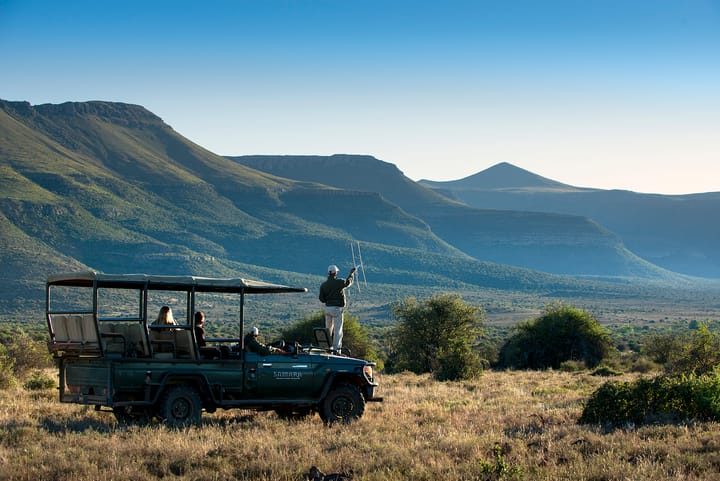
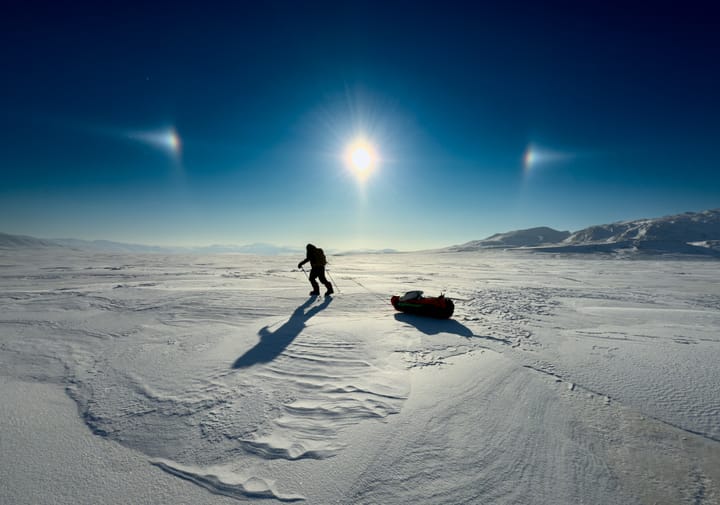
Comments ()